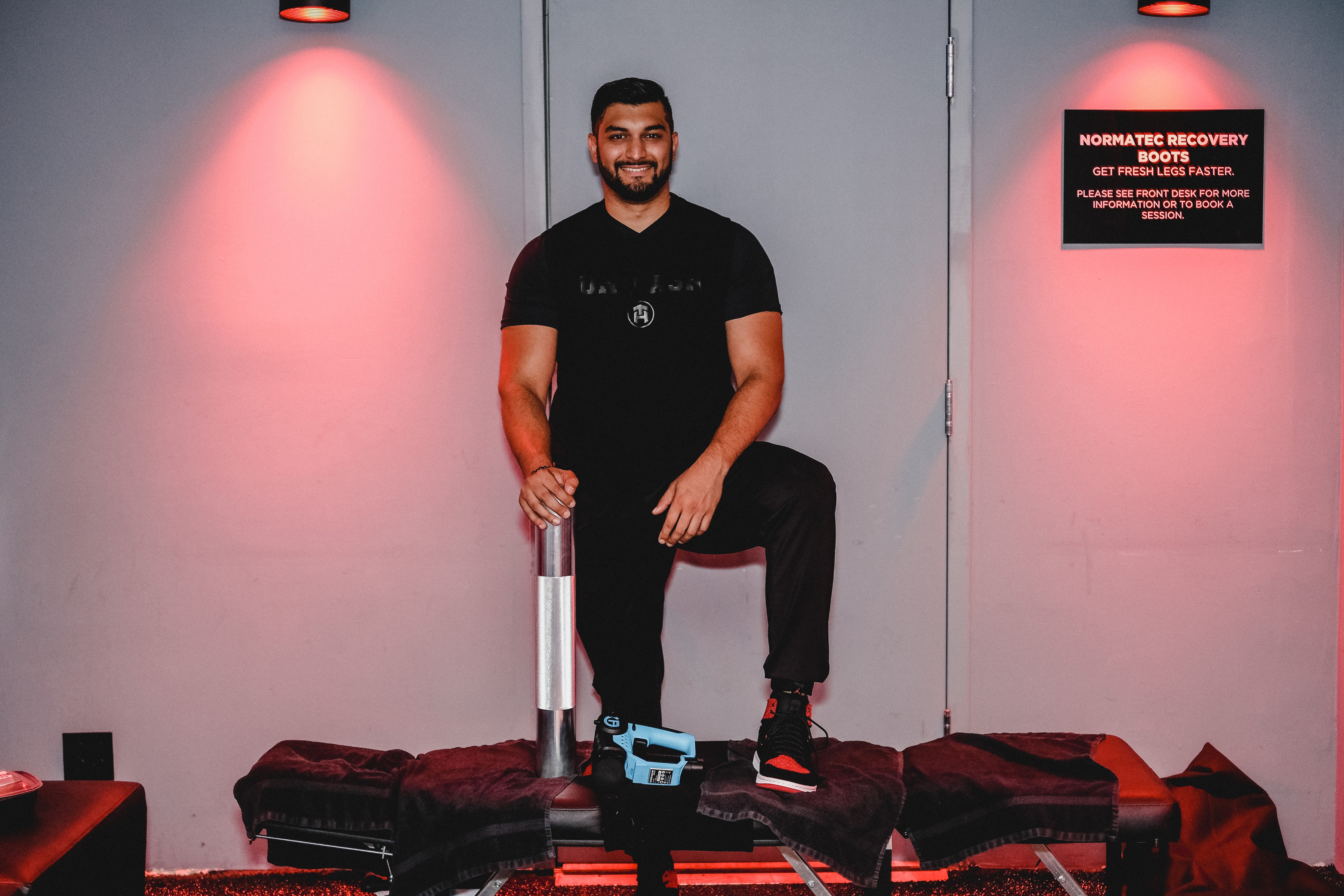
Physical fitness and health are earned through hard work, dedication, and sacrifice. In order to be successful, an Athlete must set pro-active goals with their training/recovery program. Pro-active programs are always more valuable than re-active.
My philosophy on training, health, and recovery has evolved through not only my professional experiences as a health care provider but also my upbringing as an athlete. I grew up with a deep-rooted love for playing soccer, basketball, and taking part in martial arts. I emulated professional Athletes and tried to embody them as I trained. Today, I focus my physical activity on overall athleticism; taking part in high-intensity sports-based training classes at Tone House, powerlifting, and playing basketball.
As I have progressed in my career, I have found more and more that Athletes carry a profound fear of getting injured. No Athlete wants to get hurt, and more than anything, no Athlete wants to take time away from the activity they love; training.
Moderation, especially after an injury is one of the most common themes heard in today’s society. The phrase “too much of anything is bad for you” gets thrown around more than a pair of valslides on conditioning day. Moderating the life of an Athlete seems easier said than done. Moderation has become a source of fear and redundancy. The Athlete taking time away from training creates a fear of losing gains and functionality. Countless times health care providers and influential speakers refer to “moderation” as the key to managing injuries or maintaining great health, however, the concept has lost its meaning.
In October 2017, Coach Shaun Jenkins began dealing with an elbow issue, classified more specifically as a Tennis Elbow or elbow tendonitis. This injury severely limited not only his training routine but his day-to-day life. The first course of action was to STOP training and increase his recovery. It is very difficult (if not impossible) to train and recover with a serious injury. They cannot be achieved in tandem. Shaun dedicated his time to recover and built himself back up to tolerate the everyday wear and tear on his elbow; such as brushing his teeth and grooming his beard. Once he had mastered the basics, he moved on to handling four rounds of drop-downs, pushing/pulling a sled, and bear-crawls. Today, Coach Shaun is back to his normal savage self, hitting the Turf at Tone House and throwing around 500lb weights like light work in his free time.![]()
The lesson to be learned here is that training and recovery are more about your brain than your body. They are about your ability to turn down the noise being made by your brain, having patience, and being willing to evolve around your circumstances. Not training because of an injury does not mean you cannot be successful. Training and recovery are about being mindful. Mindful of what you are eating, how you are sleeping, how much you are exercising, and how you are managing your day-to-day stress.
From my personal and professional experiences, I’ve realized the most common denominator among all humans is the brain. Your goals and vision to seeking great health are what define you. Your vision is your purpose. When your purpose is clear, so are your life choices.
When you are willing to change the way you think, you will be able to sustain more than just great health to train, you will be able to sustain a great overall life.
Yours in Recovery,
Dr. Kam
